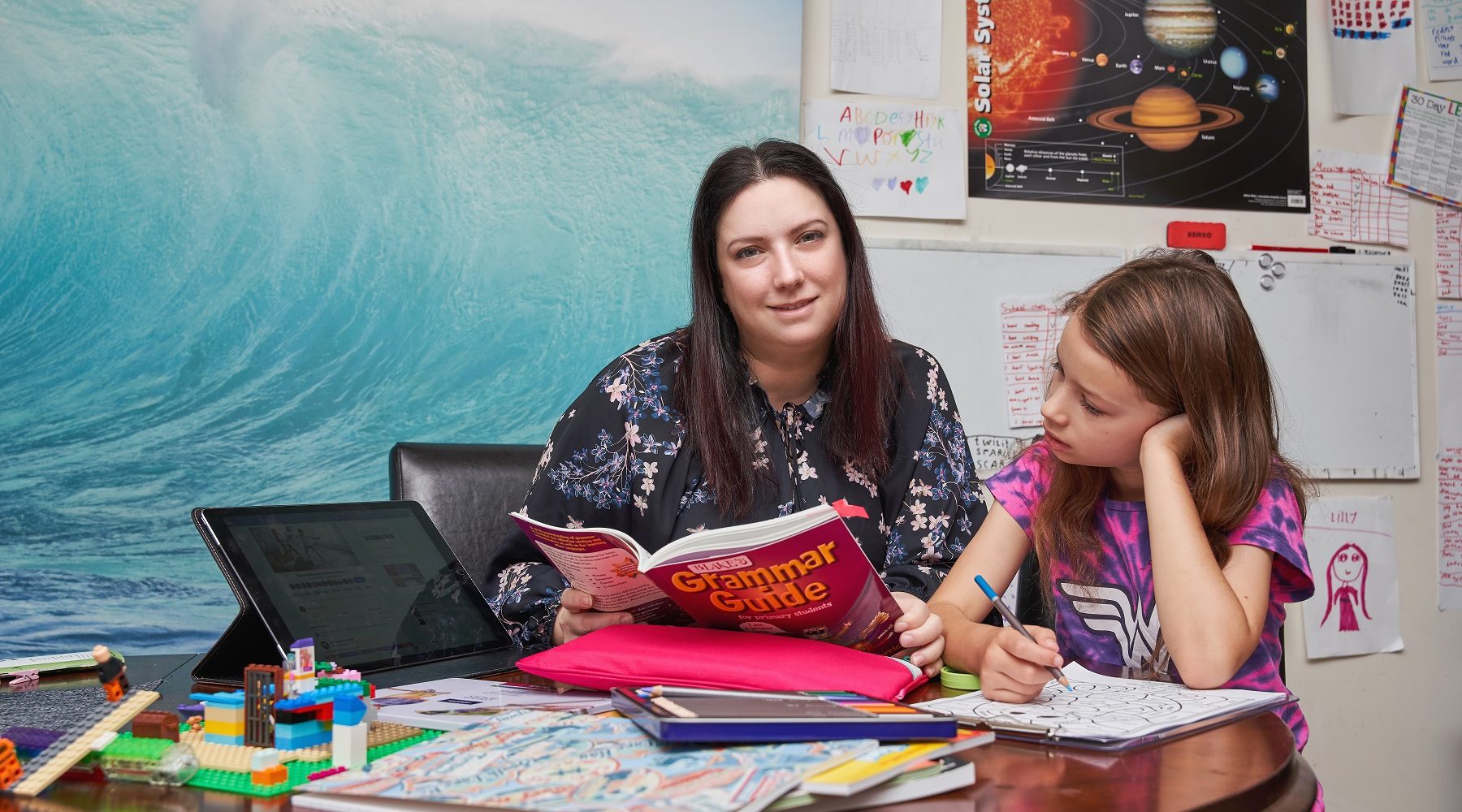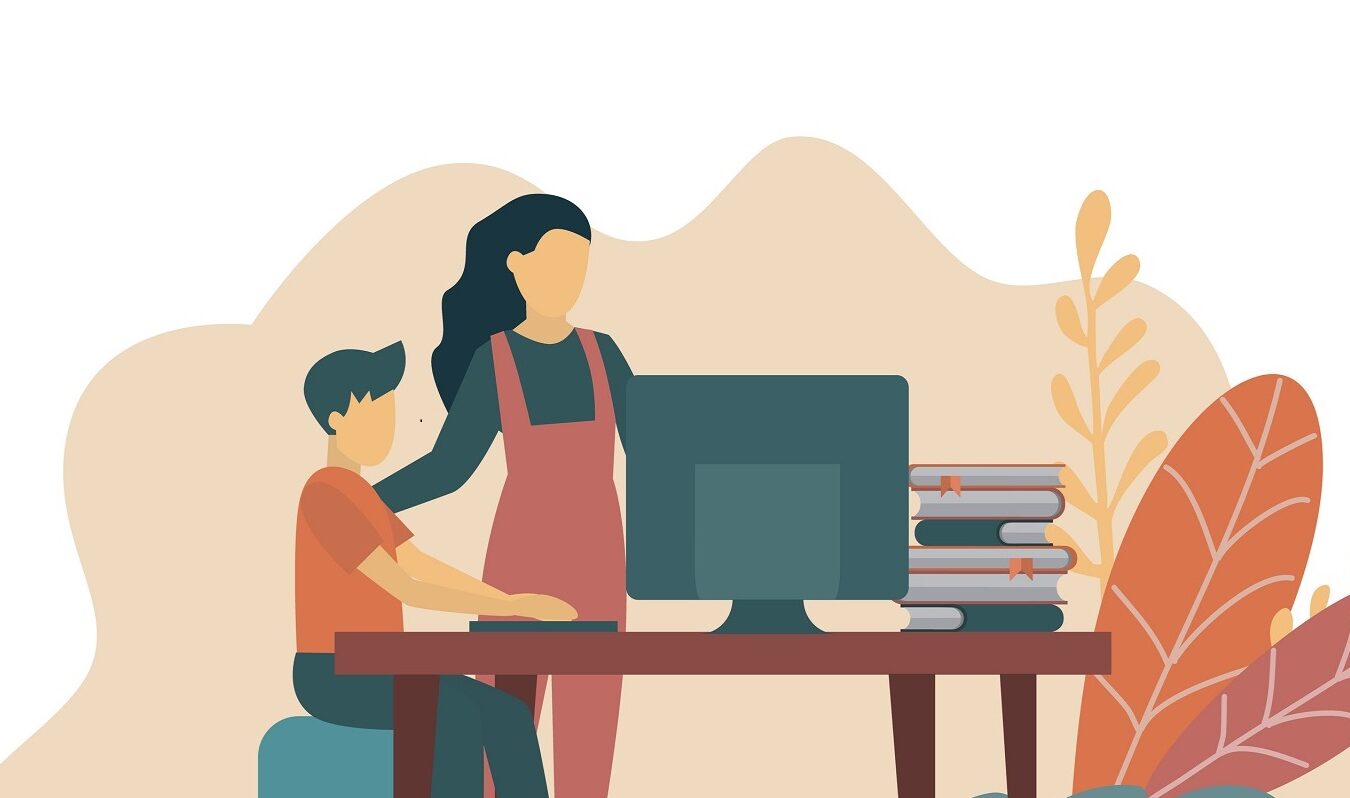
An early morning inspiration led to Melbourne mum Robyn Hill establishing an international network to share ideas for learning at home. She tells Peter Hanlon how her daughters are learning new skills, and gives her top suggestions for kids and parents to survive and thrive.
As the spread of Coronavirus gathered momentum, and isolation and loneliness filled the horizon, Robyn Hill pondered how families could make the most of this unprecedented environment. A problem solver who works in data analytics, she turned to the global community for answers.
The idea came to her in the dead of night, and she worked until 2am setting up the Facebook page Keep Kids Busy When At Home, a resource that eschews scaremongering and commercialism, and offers a safe platform for parents to share ideas and activities aimed at engaging and enriching children and parents alike.
At midday the next day she said to her husband, ‘This is really getting traction, people are loving this.’ Within a week parents from 45 countries had joined; after a fortnight membership was nearing 8500.
‘What does lockdown mean for our kids?’ Ms Hill says. ‘What does it mean for parents who are trying to hold it together and feeling quite anxious themselves? How do you bring that together in a positive way, and create a community that spans borders, that will drive some positivity?
‘In the small snatches of time that people have in their day trying to juggle it all, what kind of resources would be useful for them to quickly search for things and find really good ideas?’
Initially she reached out to old school friends from her native South Africa, some still there, others now living in America and the United Kingdom. Tips, ideas and resources have since flooded in, and two distinct schools of thought have emerged – the need to give children structure in their days, versus avoiding replicating a school environment and taking a more freestyle approach.
‘This is a really good time to pause and reflect, on the way education works as a mass execution of a certain curriculum, which makes this a really interesting case study of what actually works for kids and produces the best education and mental health outcomes,’ Ms Hill says. ‘Just by default, for families to operate through this, we need to understand the nuances of our kids.’
As children hold virtual playdates and share experiences with peers in Ecuador, Lithuania and the UAE, Ms Hill’s daughters Zara (seven) and Scarlette (nine) are learning new skills beyond schooling. Chores earn them Monopoly money, which can be converted into treats, activities and screen time. Scarlette has gone from a laundry novice to doing 16 loads of washing in a week.
‘It’s about not being afraid to think through how kids can help, particularly if both parents are working. The 21st century community is taking a new and interesting shape. If something like this is set up with the right intention, with really clear parameters, it could be a great source of positivity and sanity.’
Robyn Hill’s tips for school at home survival:
- Check how the kids are feeling emotionally at the start of each day, and what’s driving that. Anxiety comes in many forms; them being able to say they’re feeling frightened or scared is important. You can’t start a huge learning task if they’re not emotionally prepared.
- Work out how strictly to schedule the day, by establishing what you’re trying to get out of each day. Break it into bite-sized chunks – smaller for younger children, perhaps a third or quarter of a day at a time. For older kids, writing up a schedule can help .
- Create a station for their schoolwork. I’ve got a bag on the back of each chair with their books, and trolleys for their pencil boxes and craft things. They know where their things are for each activity, and where everything goes when it’s time to pack up.
- Make snack boxes containing things they’d typically find in their lunchbox, so they know where they go for snacks and aren’t constantly raiding the pantry.
- Have some structured physical activity, like a fun Zumba workout as a family.


